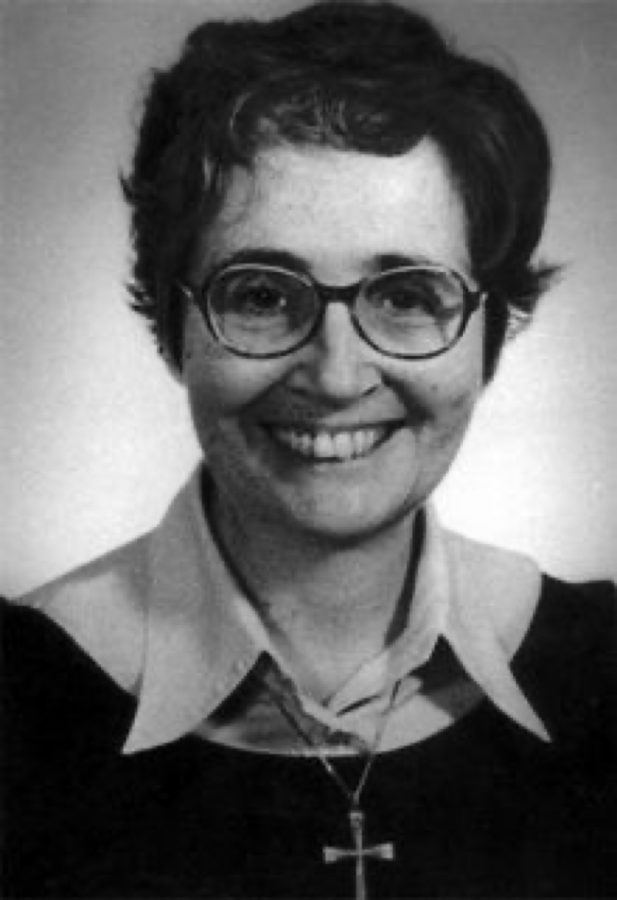The Curran Center for Catholic American Studies Hosts Student Trip to El Salvador
This past spring break, Fordham’s Curran Center for Catholic American Studies (CACS), a concentration program, enabled enrolled students to experience an academic opportunity which culminated in a week-long trip to El Salvador. The class, which prefaced the trip, was taught by. Michael Lee, Ph.D., director of the Francis & Ann CACS and affiliate to the Latin American and Latino Studies Institute. It was the result of CACS student leaders’ proposal of a trip dedicated to learning more about several Catholic saints of El Salvador.
Lee said he credits the students with proposing the trip with the aim of learning more about Maura Clarke. Concentrators in the CACS program all participate in Catholic Studies Seminar I, where students are introduced to American Catholic narratives, both of North and South America. Lee and several students echoed how transformative this first class was, particularly in the semester-long reading of the biography of Maura Clarke.
“I was really moved by our semester-long reading of the biography of Maura Clarke, a woman from a context similar to mine, born in Queens, who entered religious life and gave herself to Christ and the poor of Central America. Her approach was not self-aggrandizing but was one of accompaniment. She was murdered by the El Salvadoran government, as were thousands of other civilians. Her story and those of many others make El Salvador the nexus of Christian praxis in the Western Hemisphere,” said Benedict Reilly, FCRH ’23.
Other students who participated in the trip and class echoed a similar admiration for Clarke’s story and the importance of El Salvador in understanding other ways of being Catholic. When asked why they chose to spend their spring break in El Salvador, Anna Nowalk, FCLC ’23, recounted a popular CACS reflection question: “What’s one word that’s been on your heart?” Her response to that question was “pilgrimage.” She went on to explain that while it was a class, it was also a spiritual experience for her and many other people there. “I wanted to be changed in some way,” said Nowalk.
The course leading up to the El Salvador trip was designed to deepen student knowledge before going to the site of rich Catholic and Jesuit history. During the Salvadoran civil war, on Nov. 16, 1989, six Jesuit priests, their housekeeper and her daughter were slaughtered at their residence on campus of the “José Simeon Cañas” Central American University (UCA). When asked of a moment that was particularly moving, Lee identified when the group visited the rose garden at UCA where the murders took place. He said that being there felt like a renewal of vows and explained that the group was a part of the Jesuit community too and that being in a powerful place of pilgrimage inspires to recommit to the vision.
Students stayed with home families during their time. Nowalk explained her most moving moment during the trip:
“Our homestay mother told us a really terrible story that had occurred to someone — torture and rape — and later Dr. Lee mentioned that he had talked to her. We had asked her her story at the dinner table and didn’t really get super deep into it, but later we were talking around a circle and Dr. Lee told us about her story. She had a very brutal story that she had not told us — it struck me to be able to talk about other people’s stories but not be able to talk about your own. Looking back and seeing the pain in reflection,” said Nowalk.
When asked to discuss these moving moments, many students said there was a common feeling that the trip was deeply intense, emotionally and religious for students who got to see their class readings come to life.
Many Students echoed the importance of community engagement including this type of work and travel. When asked if Fordham students should participate Reilly said:
“Yes. I think Global Outreach-type trips are important to foster Global Citizens, especially Global Outreach trips with partners in the Jesuit network. This particular trip, visiting the University of Central America José Simeón Cañas, where the priests were murdered by US-trained soldiers, is especially powerful because of how its reality has been a call-to-action for Jesuit Universities across the world and especially in the U.S.”
Nowalk said: “People don’t have to go study abroad, but I do think people have to be very mindful of what’s happening in their communities. I’ve been given these stories, but there are so many people and so many stories and who have suffered and found joy and hope and have these incredible stories. but we as humans are limited, so I don’t think it has to be another country so long as you are being intentional about learning about.”
Intentionality and thoughtful discernment are hallmarks of CACS student education. The book “A Radical Faith: The Assassination of Sr. Maura” by Eileen Markey, FCRH ’98, which was read by students in the class, has more information about Maura Clarke.
Fordham’s Center for Community Engaged Learning (CCEL) continues to collaborate with departments and aims to expand opportunities for students going forward. When asked if something like this is possible again, Lee said “Definitely.”








































































































































































































Eileen Markey • Apr 6, 2023 at 9:26 am
It is so gratifying to know that Fordham students continue to be exposed to the work of justice in the world and the central role of faith communities advancing that quest via their theology and liberal arts classes. My Fordham education in these subjects in and out of the classroom at Fordham in the 1990s were among the factors that led me to write A Radical Faith: The Assassination of Sr. Maura (Hachette 2016), the biography students in this class read.